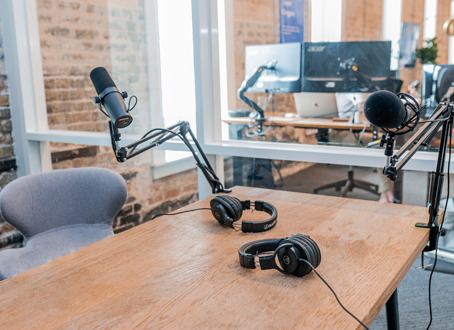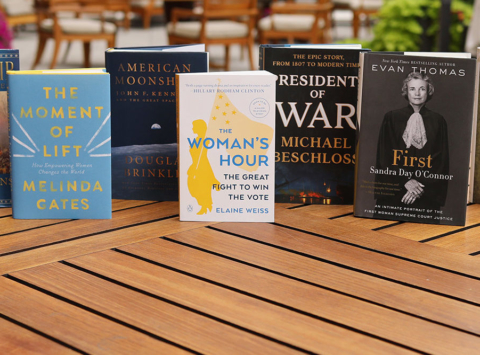This Spotlight is authored by guest writer Caitlin Kelly as part of a special blog series by the Case Foundation featuring Be Fearless stories from the field. Follow along with us as we meet people and learn about organizations that are taking risks, being bold and failing forward in their efforts to create transformative change in the social sector.
Disclosure: Reliefwatch received a program-related investment from the Case Foundation in 2015.
Imagine having to walk for three days simply to reach the nearest clinic to access the medicine you or your child desperately need. Now, imagine reaching your destination only to find the medicine you need is not there. In many parts of the developing world, that’s the reality. Reliefwatch founder and CEO Daniel Yu is helping to address this critical problem of expired medications (and a lack of needed supplies) that affect more than one million health centers and countless patients in the developing world.
It was on a trip to rural Egypt in 2012 that Yu, then an undergraduate student of international studies at the University of Chicago, encountered the problem firsthand. A local pharmacy had shelves full of various medicines, but many were out of date and therefore useless. In speaking with the local pharmacist, Yu learned that there were also no reliable communication channels—they operated without an inventory tracking system. “There was no computer or internet access, so there was no way for suppliers to see how this was happening,” explains Yu. But what was plentiful? Basic mobile phones.
At its root, the problem was one of distribution—aggravated by a serious and health-impairing failure to communicate. If only those prescribing and distributing the medicines had a reliable, consistent and easy way to make sure the warehouse knew what they needed.
Yu wasn’t then focused on the many challenges of improving public health or the specific logistical mechanics of pharmaceutical distribution. But, in a classic example of being fearless, he let a personal sense of urgency conquer his fear and reached beyond his bubble to begin substantive conversations with strangers many thousands of miles away, in places like Uganda, Kenya and Tanzania, who urgently needed a solution to this pressing problem.
Being fearless means reaching beyond your familiar areas of expertise, as Yu did. “I didn’t have deep expertise in the NGO world,” he admits. But he didn’t let that stop him. Though he lacked a background in international development, he did know the world of information technology. Yu notes, “More people in the developing world have access to a cell phone than a toilet. You can use technology to effect change. And that goes beyond simply creating the next social media site, but rather solving a problem that is fundamentally affecting people’s lives.”
But how to make use of that specific connectivity? Yu brought together a small team to create innovative software that could manage inventory records with basic mobile phones. He dove in “headfirst” with Reliefwatch simply because “no one had done it.” Being fearless and taking a risk to help people live better lives “was in our DNA from the start.”
“The big problem is availability and information transfer,” he explains. Faxed forms get lost or ignored. Phones might not work. The internet might go down, or become unreliable or expensive. So this became the challenge Yu decided to tackle, making a Be Fearless-style “big bet” that his novel and untried solution could help.

Even when a central warehouse is well-stocked with medicine, transferring information quickly, clearly and reliably between far-flung pharmacies and clinics—as well as those also responsible for getting stock out to others—is an ongoing problem. Yu looked to solve the question, “How do you make information collectible and actionable?”
Participating clinics get an automated call twice a week at a pre-scheduled time. The employee who answers is then asked, “How many bottles of amoxicillin do you have?” The employee’s keyed-in reply is then integrated into a cloud system and goes directly to the supplier. Yu shares, “It makes their life easy and straightforward. Instead of loading up a random truck once a month and finding out once they’ve arrived on-site that the pharmacy didn’t need it or, worse, they needed it a month ago.”
“Often, it’s a volume issue. The supplier is responsible for hundreds of clinics with no personal contact and lots of parts within that supply chain,” says Yu. “Sometimes it’s the manufacturer who needs the information. It becomes a transparency issue.”
At its core, says Yu, “Reliefwatch is a tool that helps organizations be more efficient and effective by reducing waste and loss.” Some organizations, having invested their resources in medicines, lose up to 10 percent of it annually when it expires before being used, he adds. Users of his system include NGOs, government organizations, private organizations “and any entity invested in making sure that medicine gets to the last mile and is available.”
USAID is currently using Reliefwatch’s system in Uganda with the country’s Ministry of Health to make sure that vaccines are being distributed; the pilot project is being tested in two districts and 80 sites and may expand to the rest of the country. “To date, we’ve had a 100 percent response rate in our data collection [in Uganda]—you’re often lucky to get responses in the double digits.”
The reason that’s important is because the fundamental problem Reliefwatch is trying solve is to use their system by collecting data (and making it actionable) in areas where it’s previously been very difficult or costly to do so. So, though previously a Ministry of Health like Uganda’s may only have had reliable information on the availability of medicines in 15 percent of their clinics, today, using Reliefwatch, they could potentially be able to access data on nearly all of their clinics, which would dramatically increase their ability to provide reliable health services, particularly in times of crisis or disease outbreaks.
Yu’s fearless plan for 2016 is to double Reliefwatch’s reach, adding Honduras, Kenya, Panama, Nicaragua, Rwanda, the Philippines, Indonesia and China. “Going into an emerging market is not as straightforward,” he says. “We’re often going in blind or semi-blind.”
It also takes a willingness to jump on a plane to Nairobi, as he did to explain his system face-to-face with dubious potential users there. Three months ago, Yu and his team noticed that East Africa is the fastest-growing business region in Africa, but at the same time, that there’s a lot of uncertainty about how to best create relationships there, let alone effective ones.
“How would we meet our ambitious goals unless we took actions to get on the ground? It wouldn’t be possible,” he says. So Yu “knocked on doors” once they arrived in Kenya and quickly saw results from his big bet. “When we actually sat across the table from people, they were extremely receptive and were more than happy to meet with us.”
And there is proof that the bet paid off: A planned two-week visit blossomed into a fruitful 2.5 months as Reliefwatch hired a full-time employee in Nairobi to handle the new business.
Feeling inspired? If you’re ready to begin your own Be Fearless journey start by downloading our free Be Fearless Action Guide and Case Studies.
Header photo credit: Flickr user DFATAustralianAID, used via Creative Commons.






